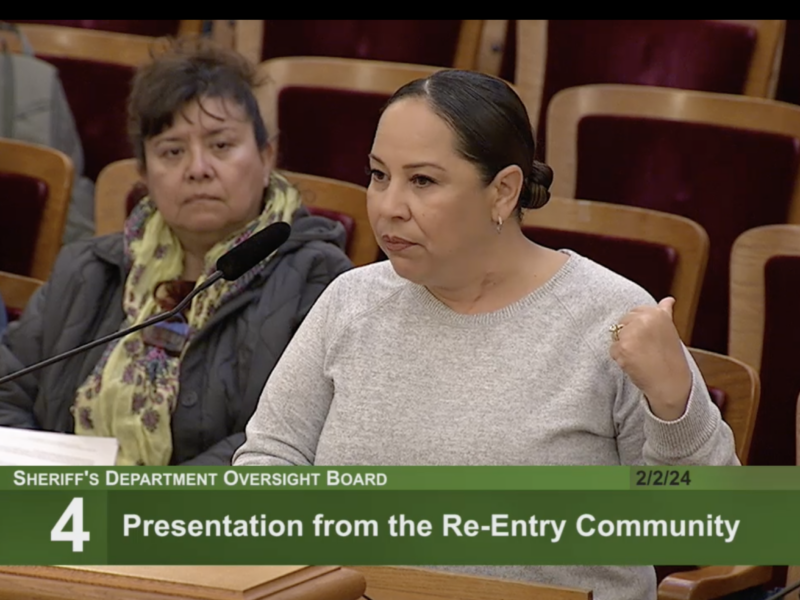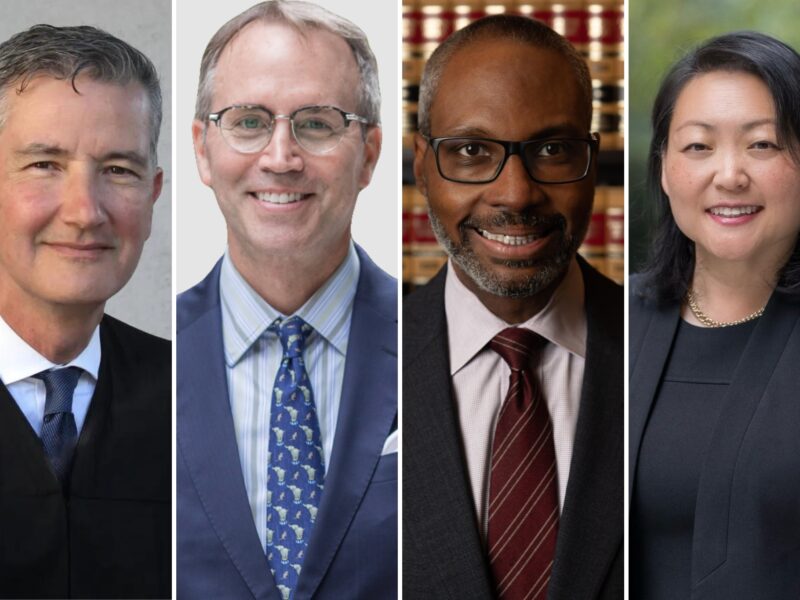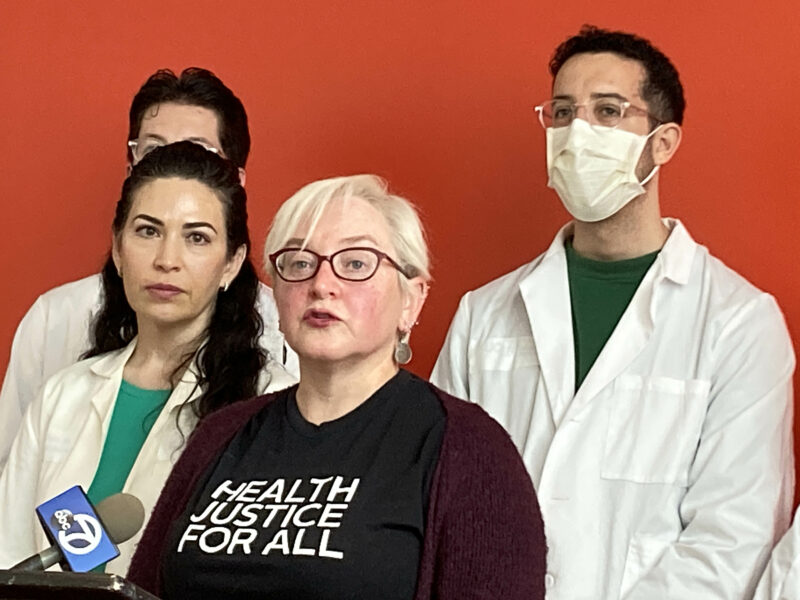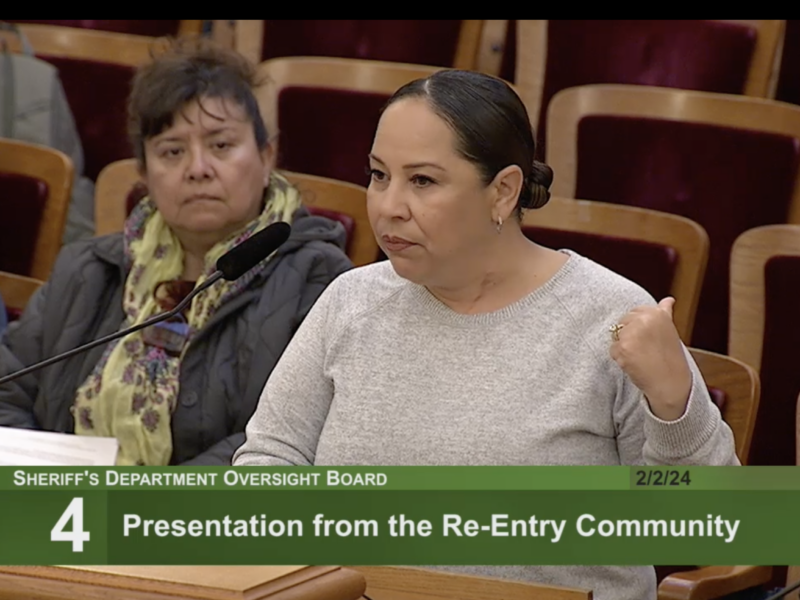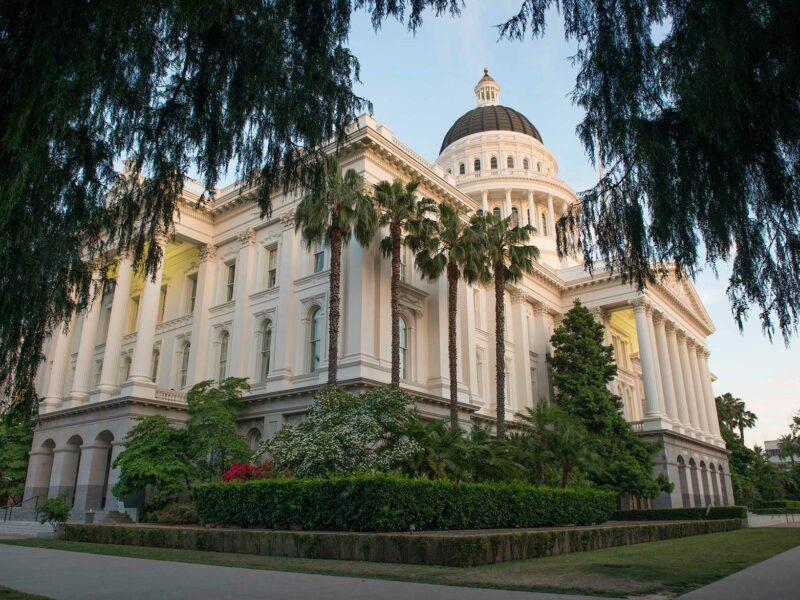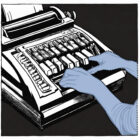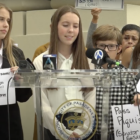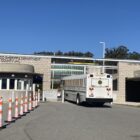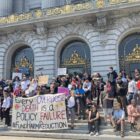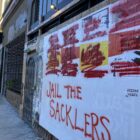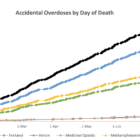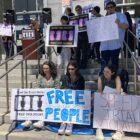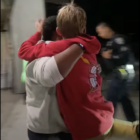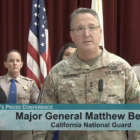La falta de programación en español es un problema crecientemente grave ya que el encarcelamiento de latinos ha aumentado desde el lanzamiento el junio pasado de una ofensiva policial contra las drogas en los vecindarios de Tenderloin y sur de Market. • Read in English: https://www.sfpublicpress.org/service-providers-demand-access-to-latinx-jail-inmates
Domestic Violence
California’s Court Reporter Shortage Limits Access to Justice in Domestic Violence Cases
Advocates for women’s and children’s rights say providing free or low-cost access to transcripts in hearings is key to equal justice. Unlike many states, California has in recent years repeatedly failed to guarantee adequate documentations of court proceedings, putting victims of domestic violence at a distinct legal disadvantage.
Despite failing for years to make transcripts standard practice, the Legislature may be headed for a breakthrough.
Law & Justice
Children Violently Removed by Court Order Celebrate New California Bill Prohibiting Practice
Two children who were violently removed from their grandmother’s Santa Cruz home in October 2022 and placed into a court-ordered program to recant parental abuse allegations celebrated a victory last month when Gov. Gavin Newsom signed a bill prohibiting such programs.
On Oct. 13, Maya, 16, and Sebastian Laing, 12, and their allies celebrated the passage of Senate Bill 331, aka Piqui’s Law, which prohibits California family court judges from forcing kids into so-called reunification camps and ensures that judges and those serving as expert witnesses undergo critical training on domestic violence and child custody.
Overdose Crisis
DA’s Opposition to Drug Diversion Programs Undermines Public Safety, Say Legal Advocates
San Francisco District Attorney Brooke Jenkins has criticized and diminished the use of diversion programs that offer criminal defendants accused of selling drugs rehabilitation, counseling and training rather than jail sentences.
Since taking office 15 months ago, Jenkins has reduced the number of referrals to the San Francisco Pretrial Diversion Project by 70%, according to its CEO David Mauroff.
And as San Francisco’s rate of overdose fatalities reaches more than two deaths a day, Jenkins is pushing for defendants accused of selling drugs to remain in jail. But some legal experts say that’s a bad strategy both for the defendants and for public safety.
“Civic” Podcast
Drug Crackdown Has Sparked Violent Turf Warfare in Central San Francisco, Supervisor Says
A drug crackdown in the Tenderloin and South of Market has resulted in more than 600 arrests, with authorities seizing more than 200 pounds of fentanyl since the initiative launched in May, Mayor London Breed said.
But the coordinated effort, involving city and state law enforcement agents, appears to be leading to violent clashes, said Supervisor Dean Preston, whose district includes the Tenderloin. “They’re poking a hornet’s nest,” he said in an interview.
Law & Justice
Anonymous Posters Singling Out Judges for Leniency in Drug Cases Earn Condemnation From Defense Lawyers
An anonymous poster campaign calling out judges who dropped charges against people accused of selling fentanyl is getting strong pushback from San Francisco legal professionals.
“This is just wildly inappropriate,” said Kirk Jenkins, Senior Counsel at Arnold & Porter Kaye Scholer. “You could cause violence against judges.”
Health
Supervisor Defends Dropping Support for Addiction-Treatment Centers
Supervisor Matt Dorsey received backlash this month for asking the mayor to redirect the entire $18.9 million in city funding budgeted for a new drop-in addiction treatment center toward jails instead.
Dorsey told the San Francisco Public Press that he reversed his previous support for the centers — called wellness hubs — once the city’s plans narrowed to one site from six, and removed safe consumption sites, which would have allowed people to consume drugs under supervision so they could receive immediate help in case of overdose.
Dorsey said he now wants the funds to go toward jail health services, including forcing treatment for people in jail who are struggling with substance abuse disorder.
Overdose Crisis
City Leaders at Odds as Overdose Deaths Trending Toward Record High
Accidental drug overdose deaths continue to torment San Francisco, according to data released Tuesday by the city medical examiner’s office.
While June saw the lowest monthly number of overdose deaths this year, 54, in July it climbed back up to 71. With 473 overdose deaths this year, San Francisco is on track to surpass its highest recorded number of overdose deaths in a calendar year — 725 in 2020.
Law & Justice
State Supreme Court to Weigh In on Long Trial Delays
A lawsuit against San Francisco Superior Court over its routine failure to uphold defendants’ right to a speedy trial is now in the hands of California’s Supreme Court. San Francisco has more than 1,100 cases past statutory time limits, and 115 of those defendants are languishing in jail without a conviction.
“Civic” Podcast
Children Violently Removed by Court Order Resurface and Report Traumatic Experience
It has been seven months since Maya Laing and her brother Sebastian, who were 15 and 11 at the time, were violently taken from their grandmother’s Santa Cruz home by court order.
Judge Rebecca Connelly, who oversaw their custody case, rejected the siblings’ claims that their mother abused them, and last October she ordered them into reunification training to repair their fractured relationship with their mother.
A friend of Maya’s recorded and posted to social media a video of the siblings resisting while transport agents from Assisted Intervention physically overpowered them in October. That was the last time Maya and Sebastian’s father, his family and the children’s friends had any knowledge of their condition — until now.
Health
Military-Style Drug War in Tenderloin Sparks Fears That More Drug Users Could Overdose
Last week’s deployment of the National Guard and California Highway Patrol onto San Francisco’s streets to crack down on drugs comes amid intense public pressure to address open air drug use and sales.
But the emphasis on law enforcement for addressing the city’s drug crisis has distressed public defense attorneys and harm reduction advocates who fear the move may worsen the rate of fatal overdoses.
